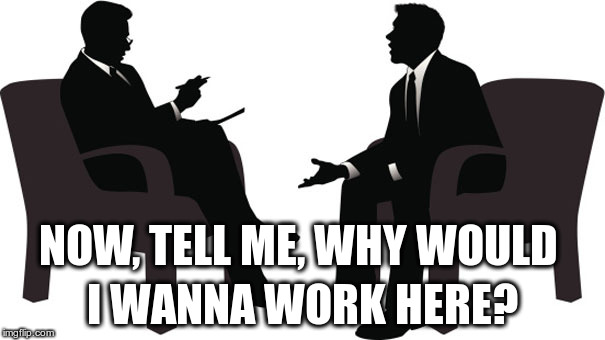Science, Comedy, and Art
“A professional schools herself to stand apart from her performance, even as she gives herself to it heart and soul. The Bhagavad-Gita tells us we have a right only to our labor, not to the fruits of our labor. All the warrior can give is his life; all the athlete can do is leave everything on the field.”
Steven Pressfield, The War of Art
This is an excerpt from one of the best books I have read in the past year, since I last posted on this Blog. I have been super busy this past year, intellectually in particular, trying to tease out some of the details of an exciting idea I've been working on, on the connection between sparse signal processing and neural networks. I am so excited that I have such a supportive research group who have been super responsive about this new direction we are taking! This is one of the hardest but most rewarding projects I have undertaken, and it had me toy around with the idea of Scientific inquiry/pursuit as Art, as well as that of Scientists as Warriors, in the sense implied in Steven Pressfield's “The War of Art”. I first heard of Steven's work on Joey Diaz's podcast. I then listened to Steven on Joe Rogan's podcast (I don't want to call it an interview because to me podcasts are way more than that, they provide a forum for longform discussion; more on that in another post). Joey and Joe are both comedians. What does this all have to do with science and doing research? Here's the short version. Read the rest of the post for the long version.
I strongly believe that quality scientific research is a creative/artistic pursuit, the outcomes of which (paper, presentation etc...) are akin to pieces of art. Where do our Ideas come from? I won't try to answer this question here, as this gets into metaphysics (I love Pressfield's take on this in the 3rd chapter of "The War of Art"). Wherever they come from, as scientists, researchers, we are in the business of allowing Ideas to actualize themselves in the physical/material world. In this process, we must face Resistance.
Pressfield wrote “The War of Art” 15+ years ago, with writers as his target audience. I heard about it on a comedy podcast. I am a researcher. I am going to spend the rest of the post expanding on my thoughts on Scientific inquiry as Art.
1. Ideas as the Universe wanting to become actualized
There's a famous story about Michelangello that I will paraphrase here: when asked how we was able to produce such amazing work as his tatue "The David", he replied that David had already been there: all he had to do was remove the excess, i.e. to let David out of the stone.
What if the Universe, however you define it for yourself, were made of Ideas, pure Ideas, whose goal is to become actualized. And, in this goal of actualization, we serve, we are picked as a vehicle. If this were the case, then there is no such thing as a bad Idea. The obsession, the fear, that accompany the process of an Idea becoming actualized are not then a reflection of inadequacies from our part. Rather, they are a reflection of how eagerly an Idea wants to become actualized. The key then, is to learn to have a good relationship with an Idea that has picked one. And I mean this in a real sense. Research, creativity, is difficult. It's difficult to the point that we make ourselves suffer pointlessly (negative self talk) because we want it so bad. How do you develop a healthy relationship with an Idea? The first step is to recognize Resistance when it rears one of its ugly heads.
2. Resistance
In Pressfield's words
“Resistance cannot be seen, touched, heard, or smelled. But it can be felt. We experience it as an energy field radiating from a work-in-potential. It's a repelling force. It's negative. Its aim is to shove us away, distract us, prevent us from doing our work.”
“The War of Art”
This is an excerpt from one page in “The War of Art”. I cannot fully do it justice. I highly suggest you pick up the book. It's a short read. Briefly, Resistance is all the bullsh#t stories that pop up in your mind that prevent the Idea from becoming actualized. Resistance tells you to postpone doing the work for one more day, Resistance tells you to not send out the paper for fear of the reviewers' comments, or when you do decide to send it out, to send it to an ''inferior'' conference/journal. Resistance tells you that you are not good enough when your paper is rejected. Resistance tells you you are the greatest when your paper is accepted. The Warrior looks at Resistance straight in the eyes and tells it: “I see you, I will not be beat today”. The Warrior respects Resistance and realize it's always there and ready to rear of one its heads. The Warrior never thinks she can cut of all of Resistance's heads.
“The War of Art” has three parts. Pressfield brilliantly ''defines'' Resistance in the first part. In the second part, he talks about how to combat Resistance and that is by “Turning Pro”. A professional shows up, does the work, rain or shine. A professional grinds, does not make excuses. An amateur doesn't show up, always makes excuses, and does not put in the work. Pressfield has a whole other book devoted to this concept of “Turning Pro”. I haven't read it yet. In the last part, which I enjoyed the most, Pressfield gives his own take on ''Where do Ideas come from?''.
What can “Turning Pro” look like in the scientific/academic context?
3. Ways to ''Turn Pro'' as an academic
a. Reading papers
This is a huge one, and a difficult one. I mentioned earlier that this past heard has been intellectually difficult and highly rewarding. I spent 6+ months reading one paper to the point where I understood it in its entirety. My students can attest to this. I still have the original version of the paper that I printed 6+ months ago. It's heavily annotated. It's beat up, wrinkled and has coffee stains on it. These are all of the marks of my battle with Resistance as I tried to understand this paper. The point here is that The Pro must know what other Pros before him have done. She must respect it. For researchers, we have to read papers. My example above is extreme, as I was delving into a new area, the basics of which I was familiar with, but not the details. What this mean is that I had to make a few detours (learn a bit of random matrix theory) along the way. One strategy I use, for papers and projects alike, is to spread them on different temporal scales. On my reading stack are papers that will take me a day to understand, others a week, yet others a month and so on and so forth. This accomplishes two things: first, I am making tangible progress, and second I am pushing myself outside of my comfort zone. This takes a certain amount of honesty with yourself and, if you are a student, your advisor can let you know on what scale a paper falls. In my opinion, it's always better to over estimate how long it's going to take you to read a paper than to under estimate.
b. Writing sh#t down
I cannot overstate how important writing is in research, as early as when you first decide to begin a project. This is something I constantly hammer into my students. Every time I start a new project, the first thing I do is create a git repo for it, with a 'writing' directory and .tex file. The document has a tentative tile for a paper, an abstract, and a potential outline. This is not something I would share with anybody at that point. It's for me. It helps me prime my brain into “Pro” mode. It lets me tell myself that this is not just some bullsh#t project. It's serious, and I mean business. This first draft is constantly updated, the frequency of update depends on how close I am to submission. So, one of the first benefits of writing stuff down, is to prime yourself into “Pro” mode. The second, and perhaps, most important benefit is the following. Earlier, I described how Ideas want to become actualized: writing is how the Ideas begin to take shape/form, and we enter a dialogue with them. I mean this. If you read about the stories of great writers, whose writing takes you on a journey, a common theme that is often pointed out is that, as soon as the story is put on paper, the characters begin to take personalities of their own and to evolve. This process of evolution of the characters is not entirely up to the writer. I will speak here for sciences that involve mathematics: the characters are the mathematical objects of interest (matrices, vectors etc...) and the notation you choose for them. They interact through the equations that describe the phenomenon you are interested in (e.g. liner system with sparse solution). The process of picking the characters, expressing your assumptions explicity through writing, is a powerful tool for teaching oneself and clarifying one's thoughts. You write sh#t down for yourself. Because, until you can do this in a way that is coherent when you read it back to yourself, you do not fully understand the problem you are working on. The equations might change, the characters might evolve, but this will not happen until you put in on paper. In the Introduction the “The Adventures of Huckleberry Finn” by Mark Twain (Penguin Classics, Deluxe Edition, the author of the Introduction Jonh Sleeve writes
“The latest scholarly reconstructions of its composition show that the author began writin the novel with one purpose and plot in mind, discarded that plot partway through, set the book aside for years, and at one point threatened to destroy the manuscript. This information is not very reassuring for critics who prefer tidy definitions, for it suggests that not even the author himself was very use of what he was doing--or was attempting to do.”
This. Is. Research.
c. Taking action
Beyond writing, Ideas evolve when we take action. No excuses, no bullsh$t. It's important to take deliberate action, even when we do not feel like it. As a researcher, you are a detective of some sort, except that you do not know, in most cases, if the crime has a solution. That's why, it's important to run experiments through simulation. This is something I've resisted for a while because of my old-school training and ego, i.e. Resistance. Resistance will tell you that if you are smart enough, you should be able to solve it on pen and paper. Run the damn simulation and save yourself weeks or months. I've probably said this before. It's imporant to be deliberate in this process. The quality of your research is in direct proportion with the quality of the questions you ask. Ask good questions. The majority of the time when you run a simulation, there should be a question you are trying to answer. If most of your simulations are exploratory, and you find yourself unable to make sense of the results, you are not asking good questions.
d. Feedback
Going back to comedy for a second, comics will tell you about the importance of frequently getting up and going on stage. This does a few things. First, it helps you to practice new bits you're working on. Second, and most importantly, the feedback you get from the audience allows you to polish the bits. Third, and this is my own opinion, simply listening to yourself say your jokes out loud allows you to give yourself feedback in a way that is not possible through writing alone. What does that look like for us researchers? We can't go and give talks every week. There are at least four ways we can do this. Weekly meetings with your advisor where you actually get on the board, write stuff down, and talk about your ideas. A mistake lots of graduate students make is to go in their advisor's office and expect to be told what do. It's not meant to be a passive process. It's an active process. Group meetings are a place where you can get feedback from your whole research group. I also think it's important to find intellectual allies who you feel comfortable bouncing ideas off of. I am not talking about people who will bullsh#t you and tell you all your ideas are great. They don't even need to say anything. They can just hold the space and allow you to voice your ideas out loud. They are a facilitator of some sort. Last but not least, real-world feedback: send that paper out, present it at a conference! Which leads me to a very fact, common to every comic and academic, myself included: bombing on stage. When comics talk about bombing, my understanding is that they talk about a set in which they weren't connecting with the audience, the jokes weren't working, and they could not get in a flow. A challenging set. That's going to happen. And that's all right. Learn the lessons you can, and chalk the rest to experience. Keep a light and humorous attitude about these things. It is that serious, but at the same time, it's not that serious.
d. Focus on the process, not the outcome
I've written about this before. The “Pro” realizes that she is not the Idea, and the Idea is not her. The “Pro” does not take criticism of acclaim personally. She is focused on the work and on making herself better today than she was yesterday.
4. How is Science different from Art?
The key difference, in my opinion, between Science and Art is in the outcome, and not the process. Everything I've talked about above is in relation to the process. When it comes to the outcome, in Science, if one accepts the postulates of whathever discpline she finds herself in (e.g. Math), there is always an answer, an absolute truth: you are either right or you are wrong, assuming the question you asked is well formulated. I hope you will agree with me that in Art, things are not so clear cut. In my opinion, this makes the scientific pursuit a bit more manageable. Why? An Idea, any good Idea worth pursuing, will take you in directions that will make you grow and stretch intellectually. That's why, being wrong is sometimes better than being right. In a way, that may not be fully apparent in the moment, any outcome prepares you for the next Idea.


